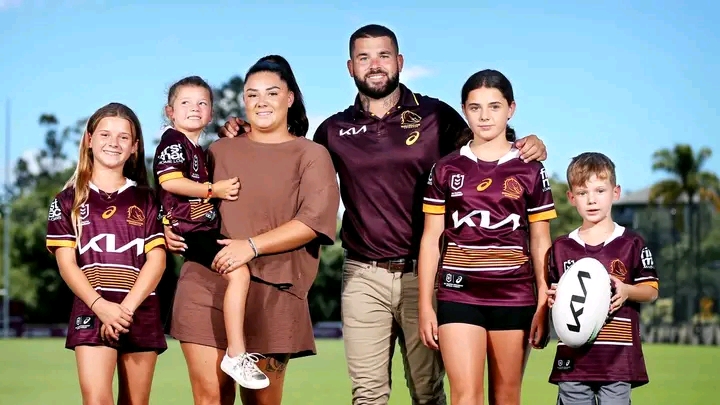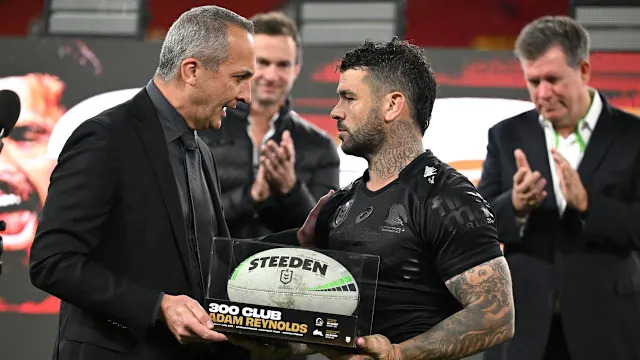“We’ll Make No Apology”: NRL Boss Hits Back at Ivan Cleary’s ‘Disturbing’ Judiciary Criticism Amid Controversial Rule Shift
The heat surrounding the NRL judiciary process reached boiling point this week as league boss Andrew Abdo fired back at Penrith Panthers head coach Ivan Cleary over what he called “disturbing” comments directed at the league’s disciplinary system. In a firm and unapologetic tone, Abdo defended recent judiciary reforms, saying the NRL would “make no apology” for putting player safety and integrity above public opinion—even if high-profile figures like Cleary disapproved.
This dramatic exchange has thrust the judiciary system back into the headlines, sparking broader questions around transparency, fairness, and how coaches and clubs express their frustrations.
Cleary’s Controversial Comments Spark Firestorm
The saga began when Cleary, fresh off a narrow Panthers defeat and facing another player suspended under the NRL’s new judiciary guidelines, took the post-match press conference to publicly denounce the system. “It’s disturbing,” he said bluntly. “You’re talking about game-changing decisions that are being made behind closed doors. We don’t get answers. We just get outcomes—and the game suffers.”
Cleary’s remarks followed the one-match ban handed to one of his star players for a high tackle deemed reckless under the NRL’s tightened contact rules. It’s the third such suspension for a Panthers player this season, and Cleary appeared visibly frustrated with what he believes is inconsistency and a lack of transparency in the process.
“We want our players to tackle safely, but we also want a fair process,” Cleary added. “I just don’t think the system is serving anyone at the moment—not the players, not the fans, and certainly not the game.”
Abdo’s Swift and Blunt Response
NRL CEO Andrew Abdo wasted no time issuing a public response. Appearing on NRL 360 and later addressing media at League HQ, he hit back with a direct message: “We make no apology for the standards we’re trying to uphold. These judiciary changes are about long-term player welfare, and no amount of sideline commentary will deter us from that mission.”
Abdo took exception to Cleary’s “disturbing” remark in particular, calling it “not only unfair but potentially damaging.”
“Words like that—coming from someone of Ivan’s stature—can undermine public trust in the process. The NRL judiciary is an independent, rigorous system. You may not always like the result, but that doesn’t mean it’s broken.”
Abdo confirmed that the recent changes were implemented after an extensive off-season review into tackle technique, concussion rates, and dangerous contact trends. One major change included the expanded “category system” for tackle offences and a lowered threshold for Grade 2 charges to trigger automatic suspensions—changes some coaches believe are too harsh.
“We consulted with clubs, medical advisors, former players, and officials,” Abdo said. “This isn’t reactionary. It’s responsible governance.”
A Tense Relationship Between Coaches and the League
This isn’t the first time Cleary and the NRL have clashed over judiciary decisions. Over the years, he’s become one of the more vocal figures when it comes to player welfare versus on-field leniency. But this latest episode has taken things up a notch—especially with Abdo personally weighing in.
Several coaches have offered support to Cleary in private, according to league insiders, though few have echoed his sentiment as publicly. “Ivan’s just saying what a lot of us are thinking,” one unnamed coach reportedly told The Daily Telegraph. “There needs to be consistency and more explanation when these calls are made.”
Still, many within the game praised Abdo’s firm stance. NRL great Corey Parker called it “exactly the kind of leadership the game needs.” Others, like journalist Paul Kent, argued the NRL has “walked itself into trouble” by making rules more complex than they need to be.
The Judiciary Process: What’s Changed?
Under the new system introduced at the start of the 2025 season, certain types of contact—particularly high shots, hip-drop tackles, and late hits—are now judged under stricter guidelines. The idea was to align on-field decisions with post-match judiciary outcomes, increase consistency, and prioritise head injury prevention.
The trade-off, however, has been a spike in suspensions, with critics claiming the process still lacks clarity. For example, one player may receive a one-match ban for a “Grade 2 careless high tackle,” while a similar offence in a different game receives only a fine—due to prior record differences or slight technicalities.
That disparity has frustrated clubs like Penrith, who argue the same offence should warrant the same outcome regardless of a player’s past.
The Fans React
Supporters have been split on social media. Some applauded Cleary for “speaking truth to power,” while others backed Abdo, saying the league’s crackdown on dangerous contact is long overdue.
“Better to have a few suspensions than players dealing with brain injuries at 40,” wrote one fan on X (formerly Twitter). Another replied, “If the system is that good, why does no one understand how it works?”
What Comes Next
While Abdo has made it clear the NRL will not retreat from its judiciary reform, there may be adjustments. League sources confirm the NRL will meet with club coaches during the bye round to review the system’s application and gather feedback—without rolling back core principles.
As for Cleary, no fine or formal warning has been issued, but the NRL may remind all clubs about the “coaches’ code of conduct” and the consequences of inflammatory language.
In the meantime, the Panthers are preparing for another tough clash without one of their key forwards—once again navigating the fallout of a judiciary outcome that’s left their head coach fuming.
Final Thoughts
The stand-off between Ivan Cleary and Andrew Abdo has exposed long-simmering frustrations in the game’s corridors of power. But as the NRL enters a new era of player welfare consciousness, it’s clear the league is drawing a firm line in the sand.
Abdo’s message couldn’t be clearer: criticism is welcome, but the NRL will not apologise for prioritising safety, consistency, and the game’s long-term credibility—even if that means weathering uncomfortable storms from some of its biggest names.



